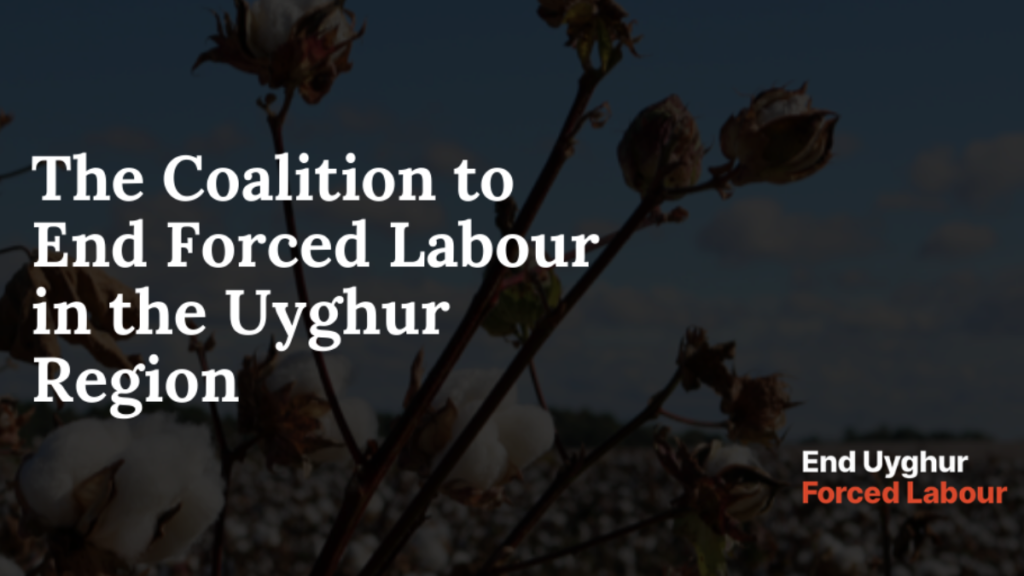Recent Entity List Additions are an Important Step in Strengthening UFLPA Enforcement

June 7, 2024
[Below is a statement by the Coalition to End Forced Labour in the Uyghur Region, for which the Uyghur Human Rights Project is a Steering Committee Member]
The Coalition to End Forced Labour in the Uyghur Region welcomes the addition of 26 textile companies, specifically, cotton traders and warehouse facilities, to the Uyghur Forced Labor Prevention Act (UFLPA) Entity List, which is maintained by the Forced Labor Enforcement Task Force (FLETF). The UFLPA establishes a rebuttable presumption that goods from companies on the UFLPA Entity List are tainted by forced labour and therefore prohibited from importation into the United States. The recent additions represent the largest single expansion of the Entity List, a critical tool in the fight to end Uyghur forced labour, since the UFLPA came into force. We urge the FLETF to expand the Entity List regularly across high risk industries and supply chains, such as seafood and aluminium.
A majority of the companies added to the List operate outside of the Xinjiang Uyghur Autonomous Region (Uyghur Region), which sends a strong signal to importers that it is not enough to focus attention on direct sourcing from the Uyghur Region. To further strengthen enforcement, the FLETF must increase efforts to identify and add to the Entity List companies that participate in the state-sponsored labour transfer of Uyghur and other Turkic and Muslim-majority peoples both inside and outside of the Region.
Enforcement in the first two years since the UFLPA went into effect has been robust. Customs and Border Protection (CBP) has targeted over $3 billion in imports to the US, across a multitude of industries. However, recent findings from investigations in the automotive and apparel sectors found products made with parts and inputs from the Uyghur Region or by companies included on the Entity List are being imported into the US. Authorities must conduct thorough investigations and, where appropriate, hold accountable all companies that misleadingly import goods in violation of the UFLPA, making vigorous use of financial penalties and all other available mechanisms.
Addressing a human rights crisis at the scale of Uyghur forced labour requires a global response. The FLETF must encourage trade partners to adopt legislation comparable to the UFLPA to ensure trading partners are not serving as dumping grounds for forced-labour-tainted goods. A global response would remove the financial benefits of operating a bifurcated supply chain, a scenario in which a company has two parallel supply chains: one with forced labour and the other without. The forced-labour-free supply chain may serve the U.S. market, which has the UFLPA ban on goods made with Uyghur forced labour, while the supply chain with forced labour would continue to serve markets without comparable laws. Bifurcation allows companies to continue to benefit from Uyghur forced labour while avoiding legal accountability under the UFLPA. Countries that continue to delay adopting and implementing forced labour import bans risk becoming safe harbours for goods made with state-imposed forced labour.
